
Prof Pat Utomi, Convener of the Nigerian Shadow Government
By TAIYE AGBAJE
The Federal High Court in Abuja on Wednesday, cautioned parties against taking any action that may render the suit filed by the Department of State Services (DSS) against Prof. Pat Utomi nugatory.
Justice James Omotosho gave the warning following complaints by counsel to the DSS, Mr. Akinlolu Kehinde, SAN, that there were moves by Utomi, the sole defendant in the suit, to take certain steps despite the pendency of the case in court.
The News Agency of Nigeria (NAN) reports that the security agency had dragged Utomi, a Professor of Political Economy and Management Expert, to court over his alleged plan to establish what he called, “a shadow government” in the country.
The DSS, in the suit marked: FHC/ABJ/CS/937/2025 and filed by Kehinde, prayed the court to declare the move as an attack on the constitution.
The service contended that the move by Utomi was intended to create chaos and destabilise the country.
The agency also filed a motion on notice praying the court for an interlocutory injunction, stopping Utomi and his agents from staging any rally or demonstration in relation to the subject matter, which is currently pending before the court.
The DSS said it got an intelligence that the defendant had concluded plans to engage in protests, road shows and media interviews.
When the matter was called on Wednesday, Prof. Utomi, who was also in court, was represented by Chief Mike Ozekhome, SAN.
Mr. Adedayo Adedeji, SAN, holding brief for Mr. Joseph Daudu, SAN, announced appearance as ‘amicus curiae.’
NAN reports that amicus curiae, a Latin for “friend of the court,” is an individual or organisation that is not a party in a legal case but offers information or expertise to assist the court in reaching a decision.
This assistance often takes the form of an amicus brief, a document submitted to the court, outlining relevant legal arguments or perspectives.
Justice Omotosho then informed the parties that after he had gone through the originating process filed by the DSS and Utomi’s counter affidavit, the court had sought the need to invite at least six eminent experts in the legal profession from the six geopolitical zones of the country to advise the court on the instant suit, being a matter of national interest.
The judge said the invitation was gender balanced.
“And I have invited amicus curiae from each political zones to represent each zone because this issue has national interest, that is, national outlook as regarding the nature of the suit.
“I deemed it fit to invite vice chancellor of university, Senior Advocates of Nigeria (SAN), and professors of law of repute,” he said.
He said the inputs of the amici curiae (friends of the court) would be shared with the parties before the hearing and judgment in the matter.
The judge announced that Prof. Ademola Popoola, a Professor of International Law and Jurisprudence from Obafemi Awolowo University (OAU), Ife; Vice Chancellor of Imo State University, Prof. Uchefula Chukwumaeze and Mr Joseph Daudu, SAN, were invited.
Others are Mr. Joe Gadzama, SAN; Prof. Dakas Dakas, SAN, former Dean, Faculty of Law, University of Jos in Plateau; Mrs. Miannaya Essien, SAN, and Yakubu Maikyau, SAN, immediate-past President, Nigerian Bar Association (NBA).
DSS’ lawyer, Kehinde, however, informed the court of their motion on notice for interlocutory injunction that was filed on June 4 to restrain Utomi from staging any rally.
“I will like to get my lord’s directive in the motion of notice for interlocutory injunction that is ripe for hearing this morning,” he said.
Responding, Ozekhome thanked the judge for inviting amici curiae from the six geopolitical zones, particularly taking into consideration the gender balance.
He, however, opposed Kehinde’s application to hear their motion.
“We have to first know the face of this case before the interlocutory injunction which we have kicked against because it is asking for a relief in the main suit,” he said.
Justice Omotosho, who hinted that the interlocutory injunction would not be taken in order to save the time of the court, ordered accelerated hearing of the case.
The judge said the preliminary objection and the originating summons would be heard together and that during judgement, the court would determine the preliminary objection before going into the substantive matter.
But Kehinde insisted that he made the application for his motion to be heard due to the plan by Utomi to engage in action that might affect the case.
“My lord, I will ask for status quo to be maintained because certain steps are being taken by the defendant,” he said.
Justice Omotosho, therefore, cautioned the parties against taking any step that may affect the case.
“I think it is trite law that when a process is served on the other party, you do not take action that will make the suit to be nugatory.
“I think the defence counsel too knows this and any action taken will have consequence.
“I have made my intention known. No party should take any step that will make the suit nugatory. Any action taken will be nullified by this court.
“Upon receipt of the positions of amici curiae, we will serve you (the parties). Let us not take steps that will make the outcome nugatory,” the judge warned.
Justice Omotosho subsequently adjourned the matter until July 10 for hearing.
NAN reports that Utomi, a Professor of Political Economy and Management Expert, in his preliminary objection filed by Ozekhome, urged the court to dismiss the suit for want of jurisdiction.
The 2007 Presidential Candidate of the African Democratic Congress (ADC) raised four grounds why the suit should be dismissed in its entirety.
He argued that the DSS’s suit disclosed no reasonable cause of action within the contemplation of the enabling statute of the security outfit — the National Security Agencies Act, Cap N74, Laws of the Federation of Nigeria, 2004.
He submitted that the “subject matter of the suit, being civic political engagement, shadow cabinet formation, and public policy discourse, does not fall within the statutory functions of the State Security Service as provided under Section 2(3) of the National Security Agencies Act.
“The reliefs sought by the plaintiff/respondent seek to criminalise constitutionally protected rights to freedom of expression, association, and political participation contrary to Sections 39 and 40 of the 1999 Constitution (as amended).
“The suit amounts to an abuse of court process, is speculative, incompetent, inchoate and lacks any legal foundation.”
Utomi, therefore, urged the court to strike out or dismiss the suit on the aforesaid grounds and for want of jurisdiction.
In the affidavit in support of the notice of preliminary objection deposed to by Utomi himself, he said that the suit was speculative, hypothetical and premature, as it seeks preemptive orders on mere suspicion and without factual basis.
He averred that the DSS lacked the requisite locus standi to institute the action in the manner it had done. (NAN)

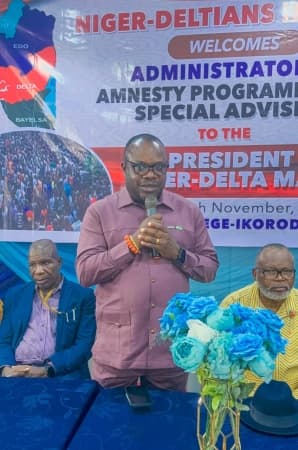


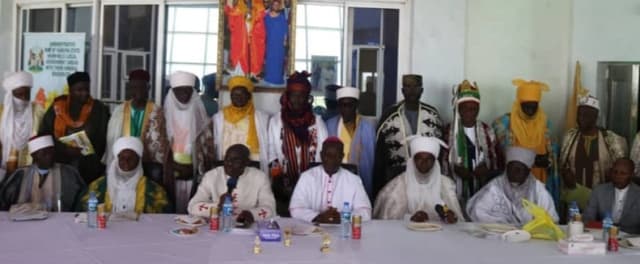
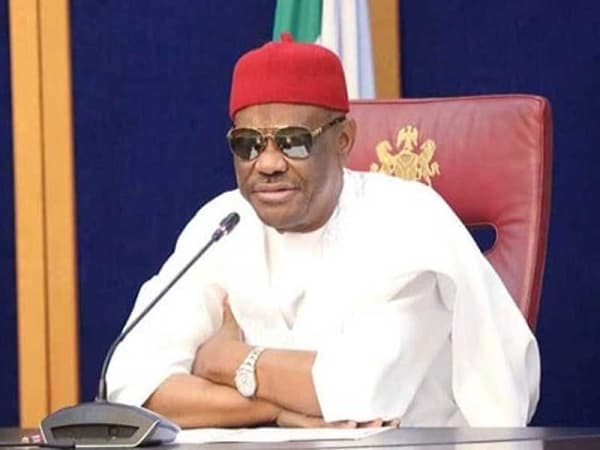


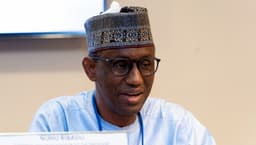
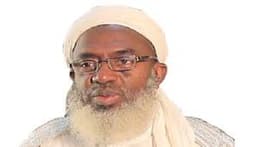





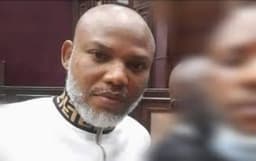
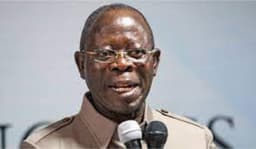


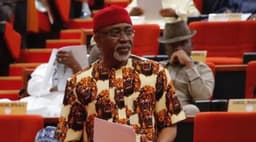
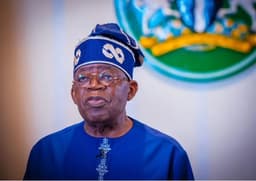



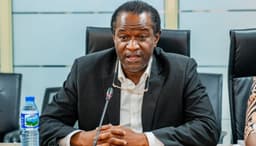


NEWS EXPRESS is Nigeria’s leading online newspaper. Published by Africa’s international award-winning journalist, Mr. Isaac Umunna, NEWS EXPRESS is Nigeria’s first truly professional online daily newspaper. It is published from Lagos, Nigeria’s economic and media hub, and has a provision for occasional special print editions. Thanks to our vast network of sources and dedicated team of professional journalists and contributors spread across Nigeria and overseas, NEWS EXPRESS has become synonymous with newsbreaks and exclusive stories from around the world.